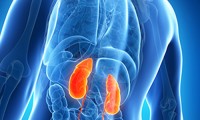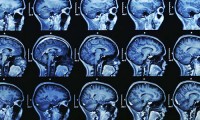-
New AI technology significantly improves human kidney analysis
- Source: Medical Xpress
- 637
- January 12, 2018
-
How doctors and bots can work together
- Source: Venturebeat
- 540
- January 10, 2018
-
California researchers highlight the benefits of total body scanner
- Source: biospectrumasia
- 559
- January 9, 2018
-
Microsoft and Adaptive Biotech to create universal blood test using AI
- Source: Verdict Medical Devices
- 524
- January 8, 2018
-
Next-generation medical scanning
- Source: ScienceDaily
- 522
- January 8, 2018
-
The Healthcare Technology Winners of 2017
- Source: hcanews
- 492
- January 1, 2018
-
Health System CIOs Are Ready to Take mHealth to the Next Level
- Source: mhealthintelligence
- 672
- December 25, 2017
-
Roche and Ignyta Reach Definitive Merger Agreement
- Source: Roche
- 529
- December 25, 2017
your submission has already been received.
OK
Subscribe
Please enter a valid Email address!
Submit
The most relevant industry news & insight will be sent to you every two weeks.













